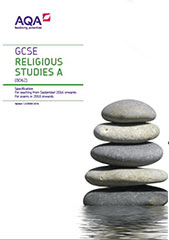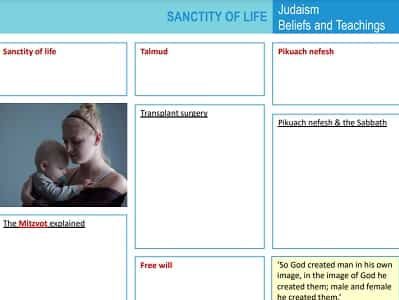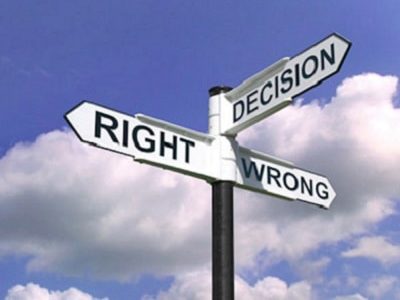JUDAISM BELIEFS & TEACHINGS
Sanctity of life, free will & the mitzvot
-
The importance of the sanctity of human life, including the concept of ‘saving a life’ (Pikuach
Nefesh) -
The relationship between free will and the 613 mitzvot
-
Mitzvot between man and God and mitzvot between man and man, including the difference
between them and their importance
‘So God created them in his own image, in the image of God he created them; male and female he created them.’
Genesis 1:27
‘These commandments that I give you today are to be on your hearts. Impress them on your children. Talk about them when you sit at home and when you walk along the road, when you lie down and when you get up. Tie them as symbols on your hands and bind them on your foreheads.’
Deuteronomy 6:-8
Sanctity of life
Explain two Jewish teachings about the sanctity of human life. (5)
Spec 2
the sanctity of human life means that humans have especial value/ in Genesis 2:7 God ‘breathed into his nostrils the breath of life’/ human life has a higher status to animal life/Sanhedrin 37a states ‘Anyone who destroys a human life is considered as if he had destroyed the entire world’, etc
the sanctity of human life means that humans are made in the image of God/Genesis 1:26–27 describes how God formed humanity in his likeness/this means that all humans have equal dignity/therefore Jews are required to respect this nature in others, etc
God is aware of the individual before he or she is born/Psalm 139:13–16 shows how humans are loved and known to Him/and are amazing in their form/Psalm 8 expresses wonder at the status God has given humans, etc.
Free will & Mitzvot
Explain two ways in which the belief that the mitzvot are the commands of God influences Jews today. (4)
Spec 1
the mitzvot must be obeyed – that is one of the Covenant responsibilities. That means, for example, that the Ten Commandments must be kept
obedience to the mitzvot unites Jews and gives them their identity; in some Jewish communities there is a clearly fixed pattern of dress, moral conduct and style of worship based on the mitzvot
some liberal groups see some of the mitzvot as being relevant only for the time at which they were given, so observe them less strictly or not at all, some aspects of food law for example.
‘Free will means that Jews can behave however they like.’ (12)
Spec 2
Arguments in support
free will is a gift from God to humanity/for humans to be truly free to
love God and obey his Commandments there must be a free choice/if this means that some people make the wrong choices, then God is aware of that possibility/if people are given a gift, it is for them to decide what to do with it
free will allows morality/without a free choice and context where correct and incorrect choices are possible humans cannot make significant decisions/the Torah states that God gives man free will to encourage him to listen to God’s word/Deuteronomy 30:19–20
humans must have free will to allow reward and retribution/Judaism believes that this world is a corridor for the afterlife/God would not be able to judge if mankind did not have true free will/humans must be tested in order to find out if they are righteous, etc.
Arguments in support of other views
there are 613 mitzvot for Jews to follow/this suggests that God has strict Commandments and expectations of the Jewish nation/when people convert to Judaism they are required to keep all of the mitzvot/Jews are expected to be an example to other nations etc
Jews understand very clearly that people are responsible for their actions. Key moral principles such as justice, healing the world, charity and kindness to others are expected from Jews/Rabbi Hillel said, ‘What is hateful to yourself do not do to your fellow man. This is the entire Torah, the rest is commentary. Go and study.’ (Talmud,
Shabbat 31a) etc
the expectation to live a moral life extends beyond the Jewish nation/the Noachide laws apply to all of humanity/in Jewish thinking if someone violates the principles given in the Noachide laws they are not living a civilised life etc.
‘Jews do not have to follow all of the mitzvot (Jewish laws).’ (12)
2018
Arguments in support
God gave Jews the gift of free will which allows them to make choices for themselves / free will is a test
Just because someone does not follow all the mitzvot, it doesn’t mean that they are living an unethical existence / many other people belong to different religions but this does not make their life unethical / likewise for people with no religious belief
There are 613 mitzvot, therefore too many to follow / some apply to men or women / others to priests
Saving a life is more important than any other mitzvoth except murder, idolatry and adultery
Many mitzvot are considered old fashioned and dated / the law was written thousands of years ago, and society has moved on / some mitzvot are illegal in modern society / some Reform and Liberal Jews do not necessarily follow mitzvot on clothing etc.
Arguments in support of other views
God commands Jews to follow all of the mitzvot / God has clear expectations of the Jews / why would God make so many rules if Jews were not supposed to follow them?
The Torah states that all the mitzvot are equally sacred and binding
Free will is a test that Jews will do the right thing, and therefore follow all of the mitzvot through choice
Obeying all of God’s law ensures the Jewish identity / Orthodox Jews would argue this is the case
Jews can no longer follow all of mitzvot because the Temple no longer exists / some are gender related, etc.
‘For Jews, the most important mitzvot are those between man and God.’ (12)
2019
Arguments in support
• The mitzvot between man and God are the foundations of the faith / to be a Jew a person must put God first / the Shema is the most important belief in Judaism / Jews are commanded to love their God with all their heart, soul and might / one cannot be Jewish without a relationship with God
• The practices of Judaism are all focused on a Jew’s relationship with God / for instance prayer and synagogue worship – there may be reference to the first four of the Ten Commandments
• The Shabbat is all about prayer and deepening the connection between Jews and God / festivals commemorate times when God showed his love for the Jewish people
• A Jew has a Covenant relationship with God / this means that Jews are obliged to keep God’s laws / and to try to bring holiness to every aspect of life / by following the mitzvot Jews are showing their respect for God / their life is an act of worship, etc
Arguments in support of other views
• The mitzvot between man and man are also important / how a Jew treats other people is very important / a Jew could not show that their relationship with God is important by treating other people badly / this is why there are mitzvot in relation to how to treat other people (the latter six of the Ten Commandments) / Jews need to demonstrate their ethical beliefs in how they deal with others
• There are mitzvot about how a Jew must treat different groups within society / including women / children / the elderly / the poor / the oppressed / the persecuted / those outcast from society / people of other faiths / criminals
• Living the faith is most important in Judaism / faith does not operate in a vacuum / it would be impossible to show a relationship with God if worship was kept purely to the synagogue / a Jew needs to show their devotion to God by the way in which they participate in their community / stand up against injustice / work for social justice / care for the planet / and live their life
• Leviticus 19:18 – ‘Love your neighbour as yourself; I am your God’ teaches how people treat others is part of a Jews relationship with God, etc.
Sanctity of life
Lesson slides: human life is uniquely
special and valuable and should be
protected at all costs

Sanctity of life
What is meant by the sanctity of human life and the principle, pikuach nefesh







